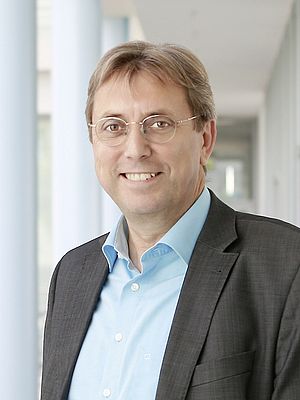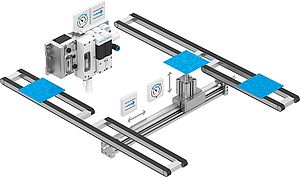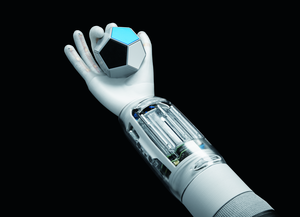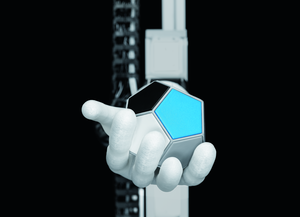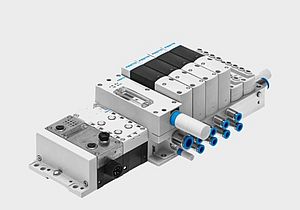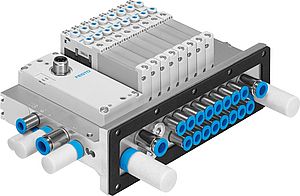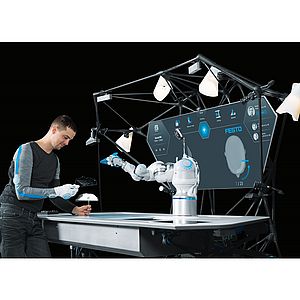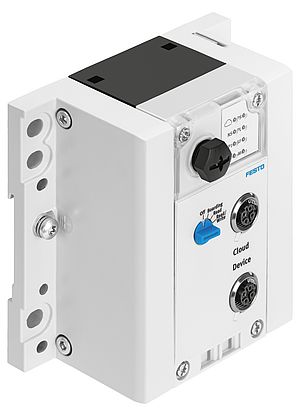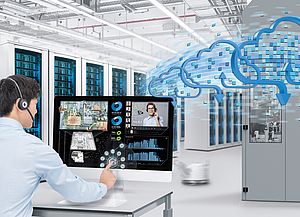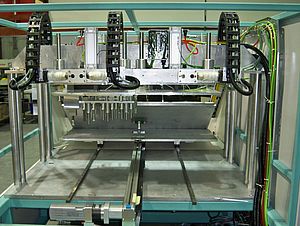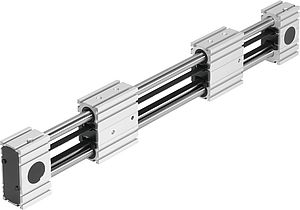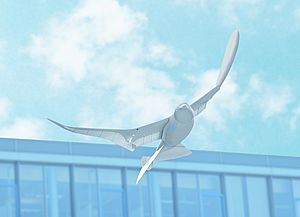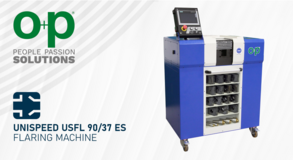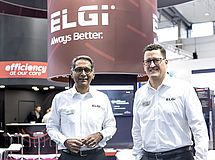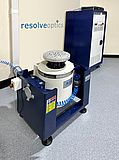Interview number 10 of our virtual round table: Andreas Oroszi, Head of Digital Business at Festo
IEN Europe: What are the main challenges when talking about digitalization? How to limit the side effects of the digital adoption?
A. Oroszi: Close cooperation between engineers and software developers will become increasingly important in future. The overall picture is this: engineers will require more and more know-how in the field of IT; and conversely, IT specialists will need to adapt more strongly to the demands of the engineering environment. In Industry 4.0, software development, electronics and hardware development are becoming closely aligned with machinery and plant construction.
Industry 4.0 is an interdisciplinary and complex project, which must be viewed as a whole from different perspectives. Besides the pure technology, we must take other aspects into account when it comes to training and qualification, for example the question of how communication between humans and machines can be structured. In many areas, staff must therefore be given different training and development. Factory planners, for example, also need knowledge of information and production technology; technicians need plenty of practical mechatronic experience so that they can very quickly rectify a machinery breakdown at the highest level. It will also come down to engineers and software developers working closely together, because behind every intelligent machine there is, of course, always very good software. Therefore, more attention must be given to software development in mechanical engineering.
At this point, it is essential to provide opportunities for the constant further development and education of employees. When engineers need more IT know-how, the company must make appropriate education offers available. Conversely, for employees this means being motivated and remaining open to these concepts for lifelong further education. The constant further development of technical possibilities is the key to success for Festo – which is why we regard the promotion of technical education as a central task and responsibility. We cater to these requirements both with the activities of Festo Didactic and with in-company further education concepts.
IEN Europe: How much is digitalization part of your company’s strategy and why?
A. Oroszi: For Festo, Industry 4.0 is a highly interdisciplinary future project, on which we are continuing to work. In our view, the automation pyramid will change in an evolutionary manner: functions from higher levels will be moved downwards – components will therefore be able to carry out orders at a superordinate control level. This digital enhancement will increasingly bring about intelligent products, which can actively support the production process thanks to increased functionality – from an independent power supply through to condition monitoring.
The continued and new development of basic technologies to support the growing level of decentralised intelligence play a fundamental role for Festo here. In particular, precision engineering and microsystem technology must be developed so that the real and virtual world can continue to merge in the production context.
In addition, artificial intelligence will play a significant role in the development of new digital products and services. Festo has included artificial intelligence as a key technology in its development strategy.
From a European point of view, the long-term aim is to keep production competitive in high-wage countries, to which Germany also belongs. The activities of Industry 4.0 will also contribute towards this. Especially in Germany, the perspective fusion of production technology and IT can be structured particularly efficiently, as public funding is also in operation for this purpose. Due to this special constellation, the attractiveness of Germany can be significantly enhanced by Industry 4.0.
IEN Europe: Digital thread or digital threat? What’s your opinion?
A. Oroszi: The new technologies will relieve production employees of certain work procedures, such as the acquisition, evaluation and utilisation of data for the control of processes. Computers can do this faster and better. In return, other work procedures will be added, for example the supervision of a larger number of machines and processes connected in networks, or cooperation with software engineers and representatives of other disciplines that are integrated into the production networks. They must be appropriately trained for this purpose.
Technology is becoming more intelligent and more adaptive and is increasingly able to adjust itself to changing conditions and to human intervention at any time. We will not have fully automated processes everywhere. Instead there will be variable processes, and this is where the ability of humans to communicate directly with technology is called on. That means technology must understand humans, whilst humans must understand the technology and do so intuitively.
However, many of the future developments are not yet foreseeable. Enterprises must first decide how they would like to make use of the new technical possibilities. Industry 4.0 will undergo quite different development processes in the various enterprises and sectors, with different requirements on their employees. In any case, the vocational education and training programmes will have to be adapted. Excellent resources for research and development, and the availability of skilled workers, are more crucial than ever to a company’s future viability in global and rapidly developing markets.
IEN Europe: What’s the role of IoT in today’s factory? Why is it so important to undertake the digital transition?
A. Oroszi: Alongside mass production, which will continue to be very important, there is also a trend in industrial production towards the individualisation of products. That is why more flexible production facilities are needed. Industry 4.0 provides new possibilities in this respect. By using components that are independently networked in an intelligent way, configure themselves and are therefore capable of ‘plug and produce’, production facilities can meet the steadily growing requirements immediately.
Information technology will play an increasingly significant role in future production – both for the operation and control of production plants and for the collation and evaluation of machinery data and information on energy consumption that are relevant to servicing. The increasing possibilities of data acquisition and processing in real time are opening new opportunities in terms of factory control and ability to react. New applications are arising, for example anticipatory servicing.
In this process, the virtual world of IT meets the real world of the shop floor: IT oversees the production network up to the level of machine control and provides the necessary infrastructure, e.g. databases, servers and development platforms. The software required for the operation of the machines is a core competence of the machinery producers. However, it is not always possible to draw a sharp distinction between these areas of competence: interdisciplinary cooperation and mutual understanding of each other’s environments is becoming more and more important. In addition, IT topics are becoming an integral part of specifications in the purchase of plant and machinery. Standardised IT interfaces and norms are playing a decisive role above all in the networking of production plants.
Sara Ibrahim


